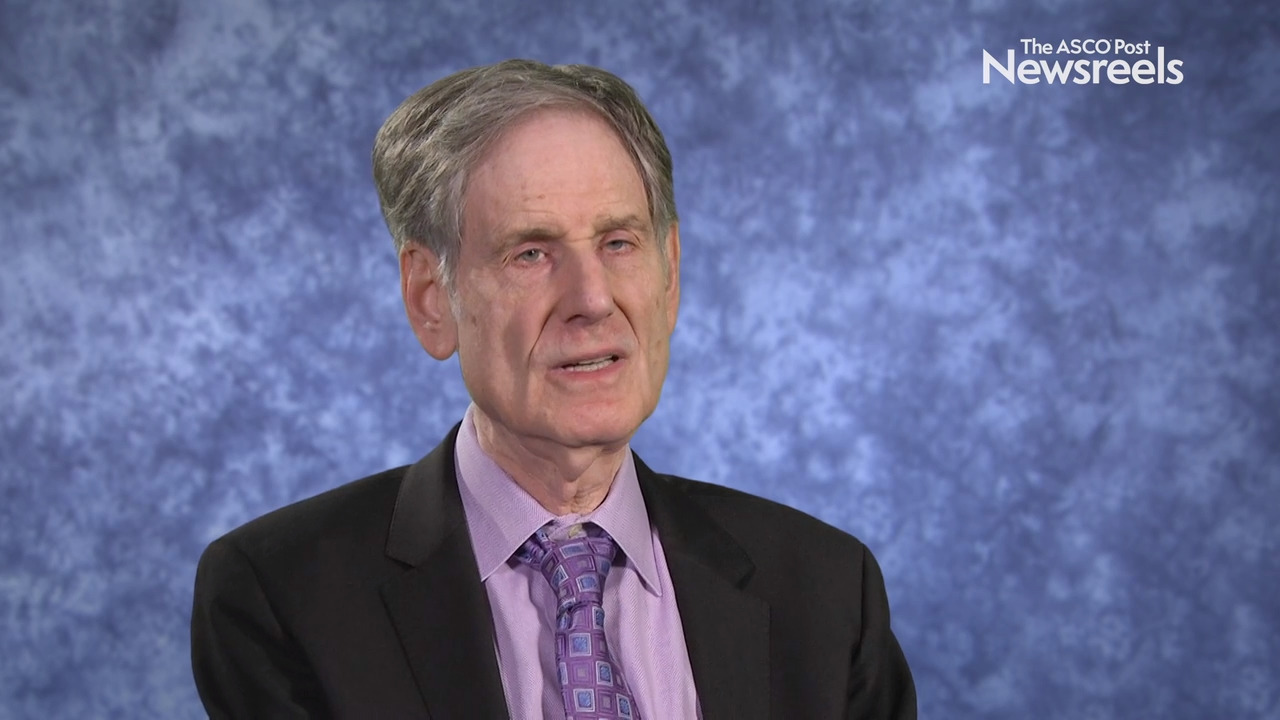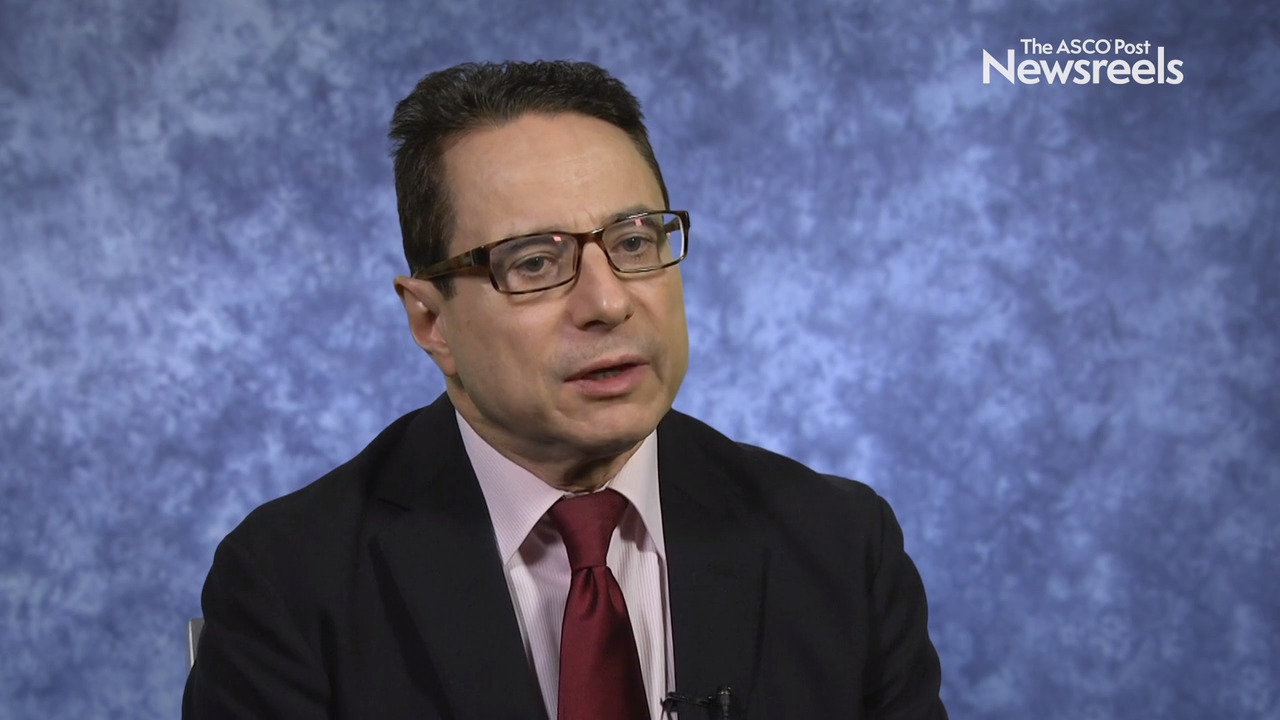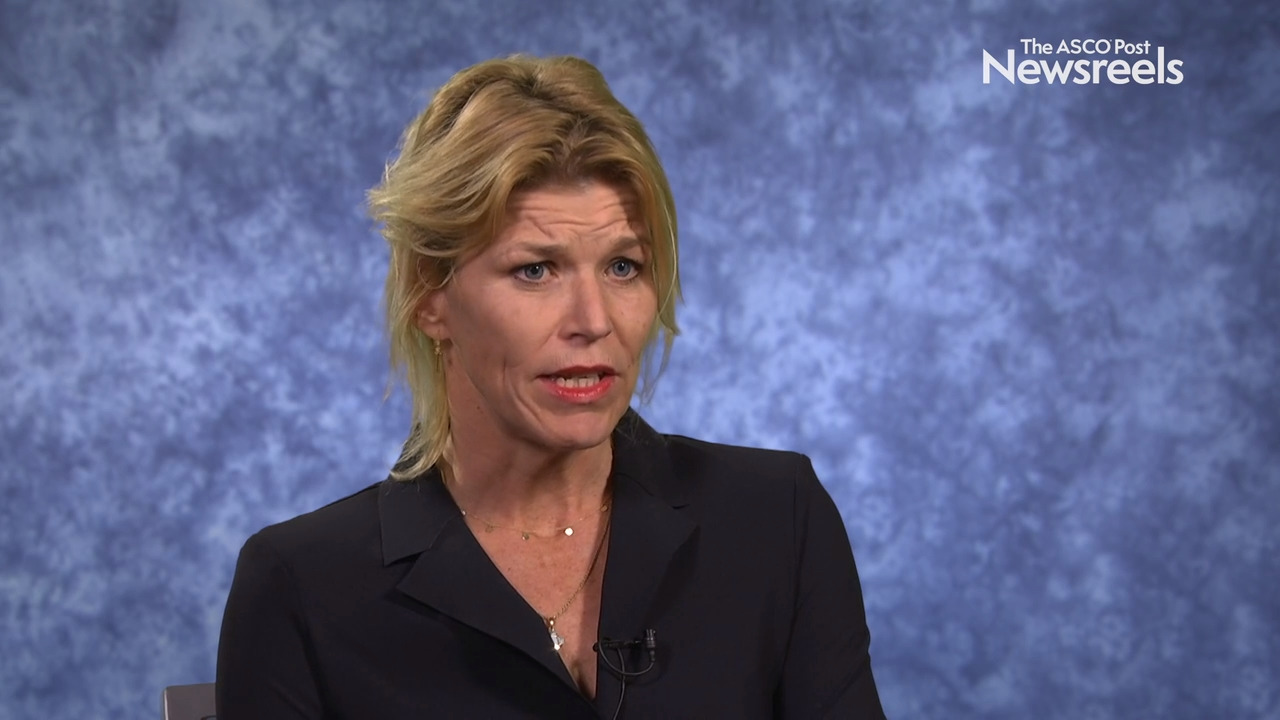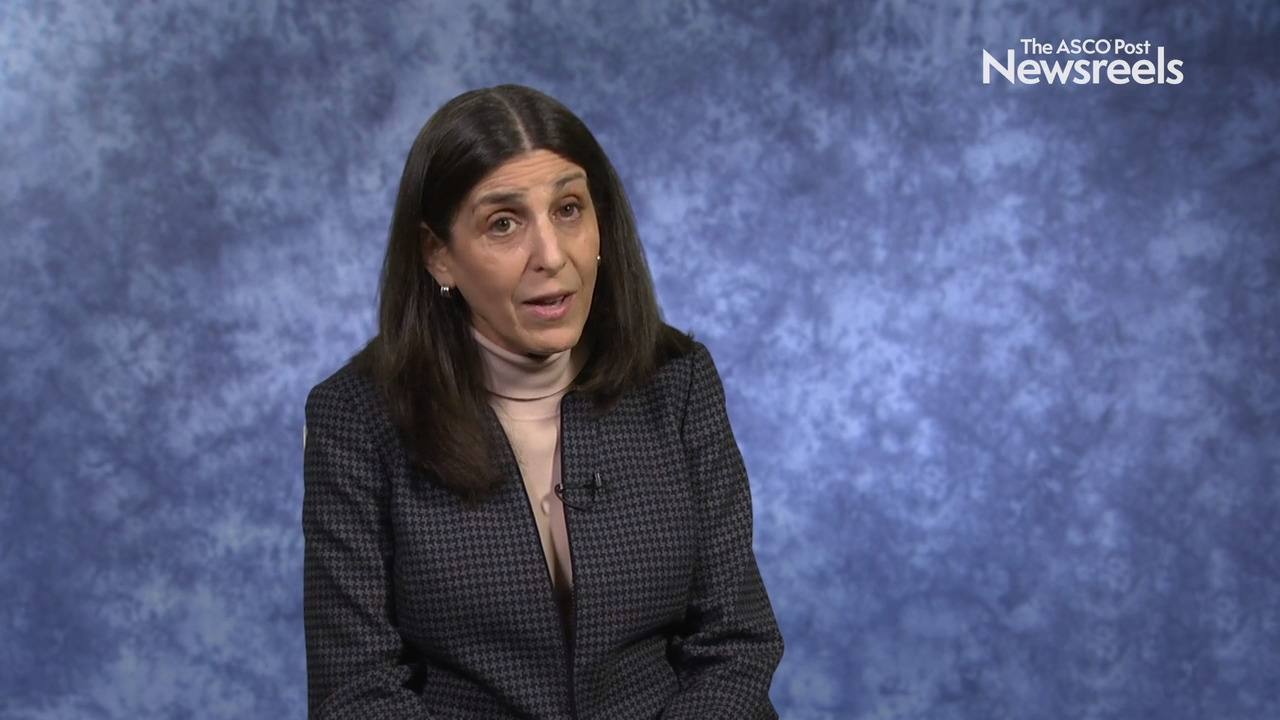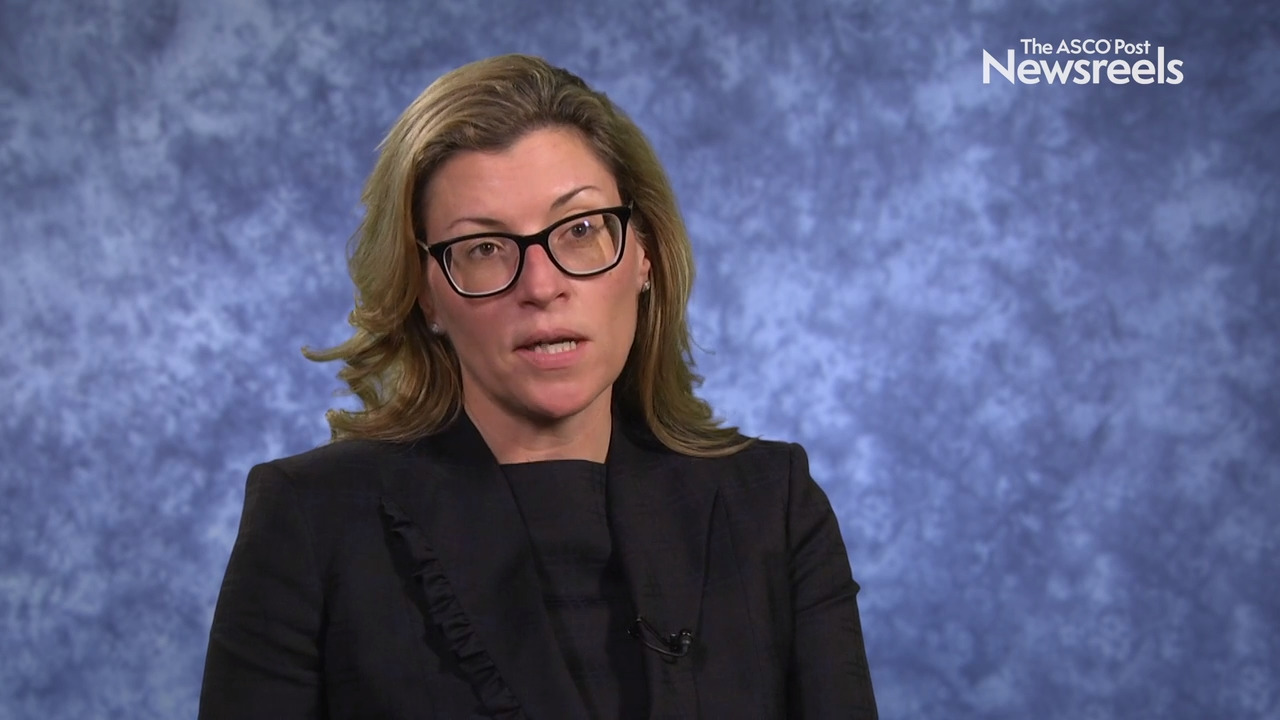Javier Cortes, MD, PhD, on Triple-Negative Breast Cancer: Results From the KEYNOTE-119 Trial of Pembrolizumab vs Chemotherapy
2019 San Antonio Breast Cancer Symposium
Javier Cortes, MD, PhD, of the IOB Institute of Oncology, discusses study findings that suggested pembrolizumab offered a prolonged survival benefit compared to chemotherapy for a subset of patients with previously treated metastatic triple-negative breast cancer. In the trial, high tumor-infiltrating lymphocytes were significantly associated with better clinical outcomes with the checkpoint inhibitor.
Ralph R. Weichselbaum, MD, of the University of Chicago, summarizes a plenary lecture in which he presented data that could guide future clinical strategies: studies supporting the basis and classification of oligometastatic disease, including breast cancer; and basic and clinical data on radioimmunotherapy (Abstract PL2).
Miguel Martín, MD, PhD, of the Gregorio Marañón Institute and GEICAM, discusses phase III study findings that showed no improvement in progression-free survival with palbociclib plus endocrine therapy vs capecitabine in patients with hormone receptor–positive/HER2-negative metastatic breast cancer whose disease progressed on aromatase inhibitors—although the drug combination was generally better tolerated than capecitabine (Abstract GS2-07).
Marie-Jeanne T.F.D. Vrancken Peeters, MD, PhD, of the Netherlands Cancer Institute, discusses an interim study analysis showing that ultrasound-guided core biopsies of the breast in patients with excellent response on MRI after neoadjuvant systemic therapy may not be accurate enough to safely select patients with pathologic complete response for omission of surgery (Abstract GS5-06).
Nadine M. Tung, MD, of Beth Israel Deaconess Medical Center, discusses cisplatin vs doxorubicin/cyclophosphamide (AC) as neoadjuvant treatment in BRCA-mutation carriers with HER2-negative breast cancer. Although cisplatin as a single agent shows activity in this setting, the pathologic complete response with this agent alone is not higher than that with standard AC chemotherapy (Abstract GS6-03).
Tari A. King, MD, of Brigham and Women’s Hospital and Dana-Farber/ Brigham and Women’s Cancer Center, discusses retrospective findings from the AURORA U.S. Network on molecular differences between primary tumors and metastases, a better understanding of which may help lead to more effective treatment of metastatic breast cancer (Abstract GS3-08).
